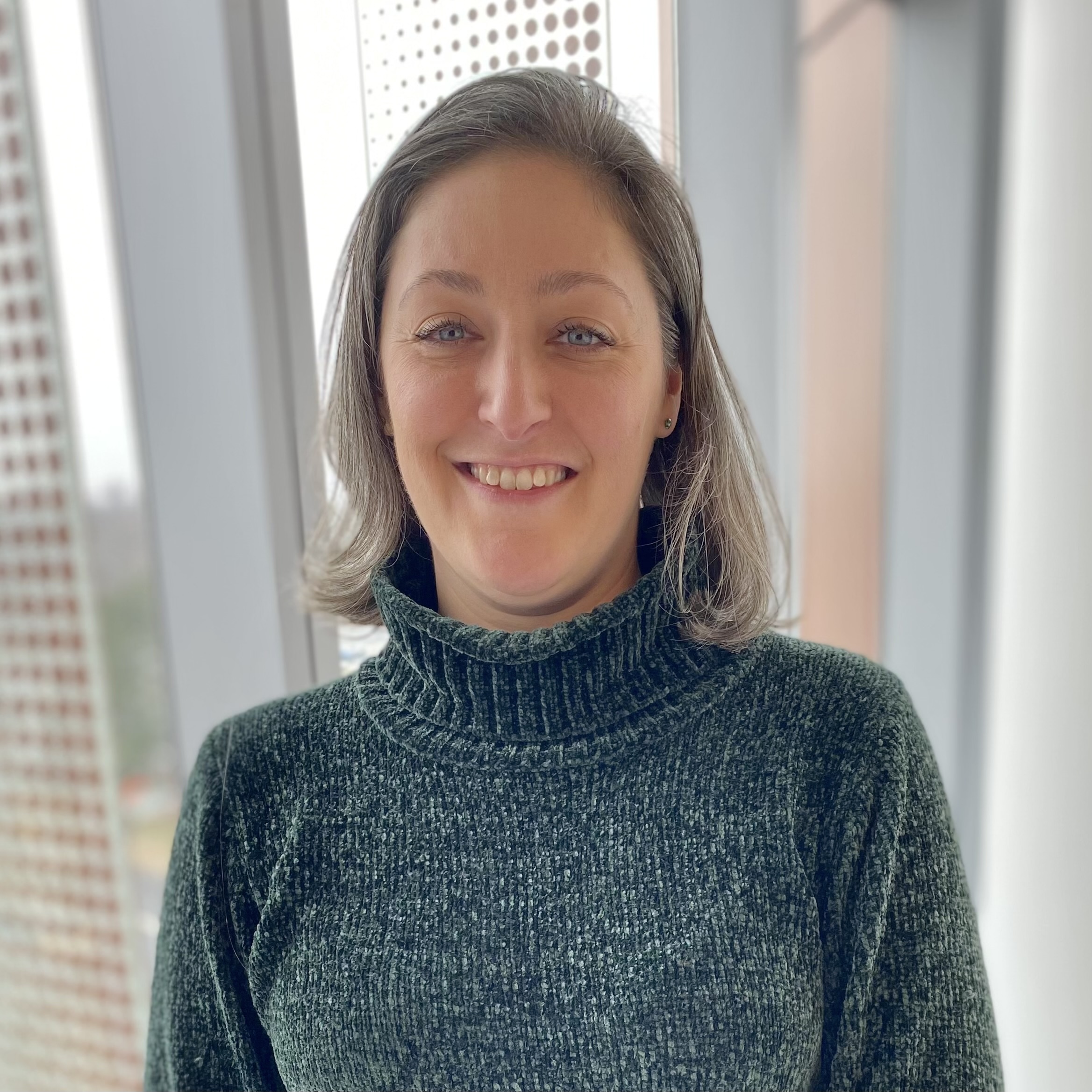
Walk into Elizabeth Hontz’s office in the Iribe Center and you’ll immediately be greeted by a vibrant array of potted plants and colorful photos featuring close-ups of butterflies, dragonflies and bees gracefully perched on flowers. A bouquet of blooms made of Lego bricks sits in a vase on her desk.
“It’s my little green oasis in Iribe,” says Hontz, who is a coordinator in the University of Maryland Institute for Advanced Computer Studies (UMIACS) and an invaluable assistant to Mihai Pop, a professor of computer science and director of the institute.
Pop calls Hontz a “treasured colleague” and a solid contributor to UMIACS’ success.
She manages Pop’s busy schedule, coordinates appointment and promotion reviews for faculty; handles flights and hotel reservations for important guests; processes reimbursements; and orders office supplies. She also plays a key role in organizing the many events that take place in UMIACS, from small meetings to large symposia.
 "Being able to direct UMIACS while also continuing my research program would be impossible without Elizabeth’s support,” Pop says.
"Being able to direct UMIACS while also continuing my research program would be impossible without Elizabeth’s support,” Pop says.
Hontz came to UMIACS in 2016 after serving as a program management specialist for the Department of Chemistry and Biochemistry, where she received the College of Computer, Mathematical, and Natural Sciences’ Dean’s Outstanding Employee award.
She has also worked for the Department of Cell Biology and Molecular Genetics and the School of Theatre, Dance, and Performance Studies, a job she particularly enjoyed as she had earned her BFA in Classical Ballet Performance from the University of Utah.
This May will mark 18 years that Hontz has been employed at UMD. The warmer spring weather also coincides with her taking on new responsibilities outside of her busy schedule at UMIACS.
Hontz is currently enrolled in a 14-week training program to become a University of Maryland Extension Master Gardener. The program trains volunteers to share knowledge about safe, effective and sustainable horticultural practices with others in their community.
Hontz, who grew up in Silver Spring, says she has always enjoyed gardening. She recalls helping her parents with their flower and vegetable gardens.
“It is truly a wonderful experience to plant seeds and watch them grow, and then harvest and cook with food from your own backyard,” Hontz says.
During the height of the COVID-19 pandemic, she started a flower garden at home, which included milkweed for Monarch butterflies. Hontz says she was amazed to see how many caterpillars her garden attracted. She spent that entire first summer watching nature unfold on her front porch, as the wriggly caterpillars underwent their metamorphosis to become strikingly beautiful adult butterflies.
This experience provided the stimulus to apply for the master gardener position, Hontz says. “I had such a large variety of birds, butterflies and other insects, from even just my small garden, and I am hoping to share that experience with others in my community and inspire them to start their own gardens.”
The program is open to any Maryland resident who likes working with people and plants and has the desire to learn more about gardening. Active master gardeners must maintain at least 20 hours of volunteer service each year as well as 10 hours of continuing education.
Trainees are required to attend classes focused on topics such as lawn care, composting and native plants and then pass a final exam. After that, Hontz and the other program graduates will work as volunteers in the counties they reside in.
Hontz hopes to volunteer this summer in Anne Arundel County at either the former Naval Academy Dairy Farm in Gambrills—which is now an extension office—or Linthicum Walks near Crofton.
“I am really looking forward to learning more about all aspects of gardening, especially flower and pollinator gardens using native plants,” she says.
—Story by Melissa Brachfeld, UMIACS communications group